Sheep farming is among the most popular and traditional business and occupations of the people of many countries around the world. People are raising sheep as a domestic animal from the ancient time. Usually sheep farming means ‘raising sheep commercially for the purpose of meat, milk and wool production’. Although sheep farming for commercial milk production is not a good decision.
Sheep are suitable for meat and wool production. You can start raising sheep in both small and large scale depending upon your budget and facilities. Commercial sheep farming business is very profitable and you will get your investment back within a very short period of time.
Before starting sheep farming business, make a proper business plan and work according to the plan. Here we are describing more about the main advantages of commercial sheep farming business and the steps for starting this business.
Advantages of Sheep Farming Business
Like many other animal farming business, commercial sheep farming also has some advantages. Sheep are raised mainly for their wool, meat, milk and skin production. Sheep meat is very tasty, nutritious and popular to all types of people throughout the world. Sheep farming business can be a great source of income and for eradicating poverty from the barren, desert, semiarid and mountainous areas. It is also a reliable income source for the people who are engaged with animal farming business. However, here we are trying to list the most important advantages of sheep farming business.
- Sheep are smaller in size and they generally eat less and require relatively less space for living. And you don’t need to have a huge capital for starting a sheep farm.
- Housing requirements of sheep are minimum. You don’t have to make an expensive house for your sheep. Just basic housing facilities will be good for them.
- Sheep farming business require less labor than any other livestock farming business.
- Ewes give birth of kids frequently, so the size of your herd will be large within a very short period of time.
- Sheep eat different kinds of greens, grass and other plants, compared to other kinds of livestock animals. So you can use them for cleaning unwanted plants from your garden or field. Sheep hardly destroy trees than goats.
- Sheep can survive by consuming low quality grass. And they can convert low quality food into meat and wool.
- Sheep products such as wool, meat and milk are used for different purposes.
- Sheep are very strong and hardy animals, and they can adopt themselves with almost all types of environmental conditions.
- Sheep require less space for living. You can even raise sheep with your other livestock animals.
- By proper care and management, commercial sheep farming business can be a great source of earning and employment. Unemployed educated young can also make a good income and employment source through raising sheep commercially.
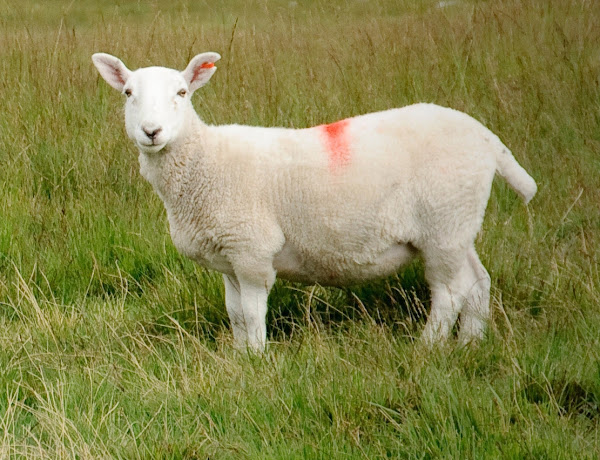
How to Start Sheep Farming Business?
Sheep are small sized animal. So starting commercial sheep farming business is very easy. But like other farming business, it will be better if you make a suitable business plan before starting. Always go through some step by step process. Here we are describing the steps of starting this lucrative business.
Complete A Training
We recommend completing a sheep farming training before starting your business. Sheep farming training is designed to provide aspiring sheep farmers with the knowledge and skills necessary to successfully raise and care for a flock of sheep. Try to complete a training from any government or private organizations.
Make A Business Plan
Like any business, a successful sheep farming operation requires a well-thought-out business plan. So, try to make a very good and effective business plan before starting. And try to include everything in your business plan from starting to operating and marketing. You can ask for help from an expert or experienced sheep farmer for preparing your business plan.

Select A Suitable Farm Location
Selecting a suitable location for starting a sheep farm is very important. Consider the essential facilities for raising sheep, while selecting the place. A good clean and fresh water source, availability of adequate amount of greens, good medication, suitable transportation and proper marketing facilities are the essential facilities for starting commercial sheep farming business. Keep in mind all these, while selecting land for your business.
Chose The Products You Want to Produce
Sheep farming is a lucrative business, and you can start this business for producing sheep products. Wool and meat are the most popular and common sheep products. Determine want you want to produce before starting.
Determine Farming Methods
Sheep can be raised in many different methods. And sheep farming methods can vary and depends on your specific goals. It also depends on the availability of land and other resources you have. Most common sheep farming methods are grazing-based, intensive and organic methods.
Select The Right Breed
There are numerous sheep breeds available throughout the world. But all of these breeds are not suitable for commercial production purpose. Some of these breeds are good for meat production, some are good for milk, some are good for wool. So, select the right breed for your business. The best breed for sheep farming will depend on several factors such as the desired end product, climate, terrain, and available resources. Some of the best breeds for sheep farming are:
Merino: Merino sheep are known for their high-quality wool, and they are one of the most popular breeds for wool production. They are well-suited to cooler climates and can thrive in rugged terrain. Merino sheep have a docile temperament and are well-adapted to grazing-based farming.

Dorper: Dorper sheep are a breed of sheep that originated in South Africa and are well-suited to warmer climates. They are a popular breed for meat production, and they are known for their fast growth and efficient feed conversion. Dorper sheep are also hardy and adaptable to a variety of grazing conditions.

Suffolk: Suffolk sheep are a breed of sheep that are well-suited to meat production. They are known for their high-quality meat and fast growth rate. Suffolk sheep are also adaptable to a variety of grazing conditions and are well-suited to intensive sheep farming methods.
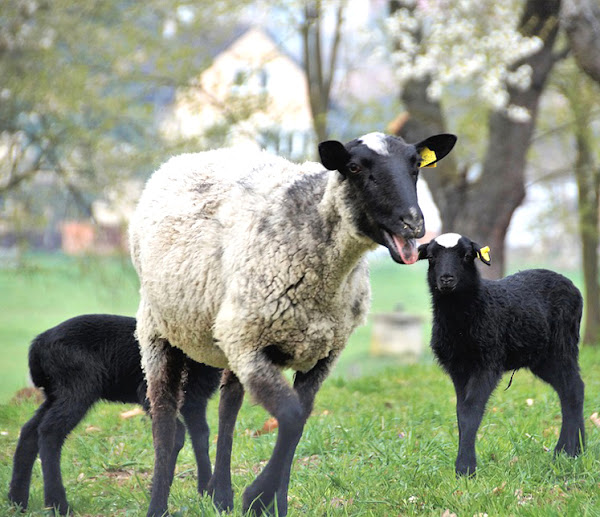
Hampshire: Hampshire sheep are a breed of sheep that are well-suited to meat production. They are known for their large size and high-quality meat. Hampshire sheep are also hardy and adaptable to a variety of grazing conditions.

Cheviot: Cheviot sheep are a breed of sheep that are well-suited to grazing-based farming in rugged terrain. They are known for their hardiness and adaptability to harsh weather conditions. Cheviot sheep are also good for wool production, and they have a docile temperament.
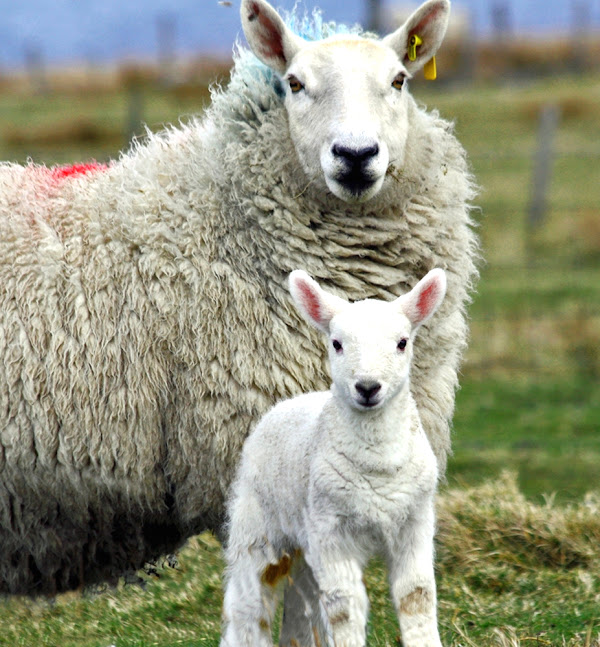
Border Leicester: Border Leicester sheep are a breed of sheep that are well-suited to wool production. They are known for their high-quality wool and are also good for meat production. Border Leicester sheep are hardy and adaptable to a variety of grazing conditions.

Texel: Texel sheep are a breed of sheep that are well-suited to meat production. They are known for their high-quality meat and efficient feed conversion. Texel sheep are also adaptable to a variety of grazing conditions.
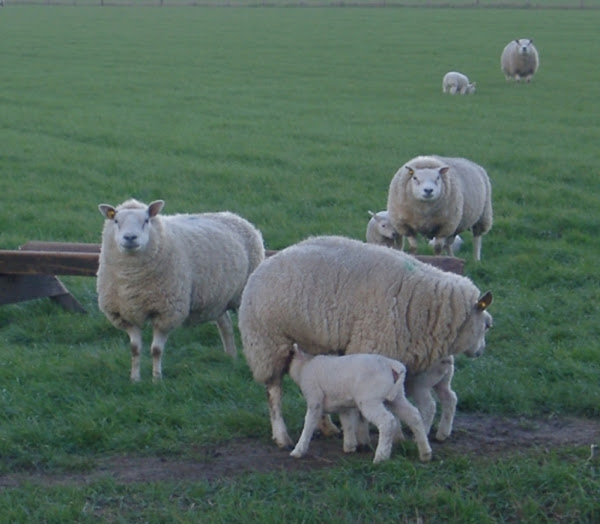
Purchase Quality Sheep
Purchase good quality, healthy and active sheep from famous farms or breeders. Purchasing good quality animals is very important for ensuring good growth and maximum production in the future.
Ensure Good Housing System
Sheep don’t require high-end or expensive housing system. They are happy, as long as you fulfill their basic housing needs. Even you can raise them with other livestock animals, in small scale production. But for commercial production, you have to make a separate and suitable house for them. Their house must have to be suitable enough to keep them safe from adverse weather conditions and harmful predators.
Usually an adult sheep requires about 10- 20 squire feet floor space. For example, if you intend to raise 10-15 sheep, then you have to make a house measuring 10 feet long and 20 feet wide. Keep the roof at least 6 feet high from the floor. Make good ventilation system. Always try to keep the house clean and dry. Ensure flow of sufficient air and light inside the house. It will be better if you can make a proper drainage system inside the house.
Provide Nutritious Feeding
Feeding the sheep with very good quality and nutritious food is the most important part of commercial sheep farming business. Good feeding is must for proper growth and maximum production. High quality food also helps to keep the animal healthy, productive and diseases free. So always try to feed your goats high quality and nutritious foods. Usually all types of grasses, plants and corns are favorite food of sheep. Follow the sheep feeding chart below.

In accordance with providing your sheep with high quality and nutritious food, always provide your sheep adequate amount of clean and fresh water according to their demand. And clean their waterers and feeders regularly.
Reproduction
Sheep are naturally very good breeders, and they will breed easily if you keep good ratio of rams and ewes in your herd. Generally, one mature healthy ram is enough for breeding around or up to 25-30 ewes.
Caring And Other Management
Good care and management can ensure maximum profit from your sheep farming business. So always try to take good care of your animals. Always try to purchase very good quality and productive breeds, feed them nutritious foods and make a suitable house for them. Vaccinate them timely to prevent them from various types of sheep diseases. And always keep good relation with the vet, so that you can ask for help anytime.
Diseases And Their Prevention
Like many other farm animals, the sheep are also susceptible to some common diseases and health problems. They are susceptible to a variety of diseases and parasites that can impact their health, productivity, and profitability. Common sheep diseases are Footrot, Scrapie, Internal parasites, External parasites, Pneumonia etc. Try to learn more about these diseases and and their prevention method from expert. Some ways for preventing sheep diseases are vaccination, biosecurity, parasite control, nutrition and management and regular health checkups.
Sheep Vaccination
Vaccinating the sheep timely is also very important. Vaccinating the animals timely helps them to stay healthy, active and disease free. Learn about the sheep vaccination schedule and vaccinate your animals timely to keep them healthy.
Marketing
Marketing sheep products is very easy and simple. You can sell your product in your local livestock market. It will be better, if you determine the marketing strategies before starting this business. You can also consider international market (if you have proper facilities).
These are the common steps and ways for starting and operating a successful sheep farming business. Hope this guide has helped you. May God bless you!
Frequently Asked Questions (FAQs)
People often ask several questions regarding sheep production business. Here we are trying to list the most common questions about this business and trying to answer them. Hope these answers will help you. Don’t hesitate to ask if you have more questions.
What is sheep farming?
Sheep farming is the practice or raising sheep for the purpose of meat, milk, wool and skin production. This practice includes breeding, caring for, and managing sheep in controlled environment.
How much profit in sheep farming?
Profits in sheep farming business depends on some factors such as market demand, production costs, and overall farm management. Your production will be much more profitable if you can manage everything efficiently.
How to make sheep farming profitable?
For making your sheep production business profitable, ensure good health and breeding management, reduce feed and veterinary costs, and target the right audience for your products.
How to start a sheep farming business?
Starting a small scale or commercial sheep farming business is relatively very easy and simple. you can easily start this business even if you are a beginner. Just follow the steps mentioned above for starting and operating a successful business.
Is sheep farming cruel?
No, sheep farming is not inherently cruel. But some unethical practices like overcrowding, poor health care and neglect can lead to suffering. Ethical farming practice focuses on proper animal welfare, space, and care.
Is sheep farming profitable?
Yes, sure. It is a highly profitable business, especially if you can focus on high-demand markets for meat, wool, or milk.
Is sheep farming profitable in India?
Yes, sheep farming can be a profitable business in India, especially in the areas where lamb and mutton are in high demand. Actual profitability in this business depends on some factors such as selection of good breed, practicing good health management, and very good access to markets.
Which is better goat or sheep farming?
Both are profitable but which one is better for you depends on your goals. Goats generally require less land and they are much hardier in various environments. While the sheep are better for wool and milk production purposes.

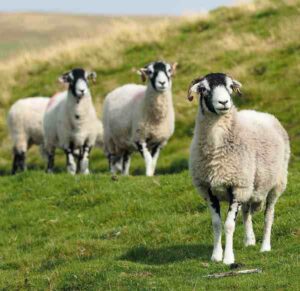
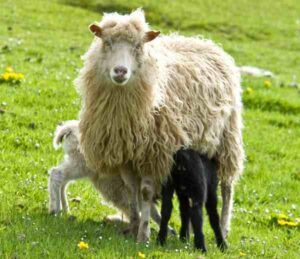
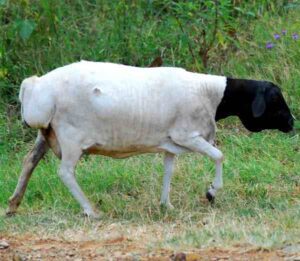
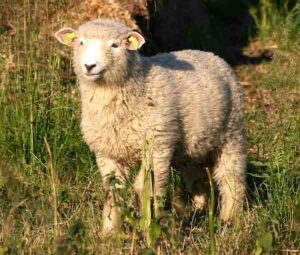

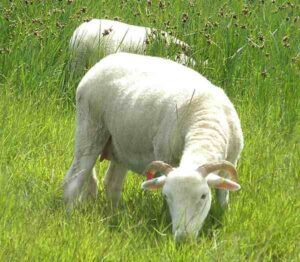
Good topic I learnt a lot.
I keep a small herd now I will expand
This is very helpful, I will follow it 100%
Thanks for your honest opinion! Good luck!
Thank you for your lectures, but wanted to know where can i find a standard sheep and goats farms in Nigeria. Please help me with that.
What are the primary factors influencing the choice of sheep breeds for a successful sheep farming business?
The choice of sheep breeds should align with your farming goals, such as meat or wool production, adaptability to your region’s climate, and resistance to prevalent diseases. You should always emphasis your local breeds. Please consult with an expert in your area for better recommendations. Good luck!